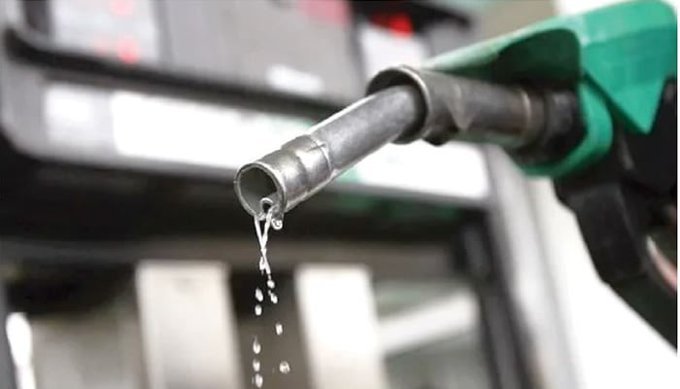The Petroleum and Natural Gas Senior Staff Association of Nigeria (PENGASSAN) has commenced a nationwide strike, sparking fears of a possible hike in fuel prices as the shutdown of critical oil and gas facilities threatens supply chains across the country.
The industrial action, which began on Sunday, follows a breakdown in negotiations between PENGASSAN and the management of Dangote Refinery, with the union accusing Africa’s largest refinery of unfair labour practices and non-compliance with industry standards.
The strike comes at a sensitive time for Nigeria, where fuel distribution and pricing have long been contentious issues. Already, independent marketers are warning that the disruption could create supply shortages, ultimately driving up pump prices in a country where citizens are grappling with high inflation and rising living costs.
The Roots of the Crisis
According to reports, the dispute between PENGASSAN and Dangote Refinery centers around alleged violations of workers’ rights, including poor welfare conditions, irregular employment practices, and failure to implement negotiated agreements.
The union had issued several warnings in the past weeks, threatening to shut down operations at the $20 billion Dangote Refinery complex in Lagos if their demands were not met. On Sunday morning, the union carried out its threat, announcing the complete shutdown of the refinery plant.
In addition, operations at the Dangote Fertiliser Plant were partially affected, with one production line shut down completely and another operating at reduced capacity. PENGASSAN insists that the industrial action will continue until their grievances are addressed.
Union leaders have also accused the refinery of undermining the collective bargaining rights of employees, a charge Dangote Industries has yet to formally respond to.
Fuel Marketers Raise Alarm
The downstream sector is already on edge, with fuel marketers warning that the strike could disrupt supply chains and trigger scarcity at filling stations.
Independent Petroleum Marketers Association of Nigeria (IPMAN) officials told reporters that the strike action could have a ripple effect across the economy. With Dangote Refinery currently being positioned as a major player in Nigeria’s fuel supply system, a shutdown could force the country to rely more heavily on imports at a time when the foreign exchange market is under pressure.
One marketer who spoke anonymously said:
“The timing of this strike is dangerous. The refinery plays a critical role in stabilising supply. If it remains shut down for long, we could see a shortfall in distribution and this usually translates to higher prices at the pump.”
Already, queues have been reported at some fuel stations in Lagos, Abuja, and parts of Port Harcourt, as motorists rush to fill their tanks in anticipation of scarcity.
Government Intervention
The Federal Government has summoned both parties to an emergency meeting in Abuja in an effort to avert further escalation. Officials from the Ministry of Labour and Employment, as well as the Ministry of Petroleum Resources, are expected to mediate in discussions scheduled for later this week.
In a statement, the government appealed to PENGASSAN to suspend its strike in the national interest, warning that the economic implications of prolonged disruption could be severe.
“Any disruption in the supply of petroleum products at this time will compound the economic difficulties facing Nigerians,” a senior government official said. “We urge PENGASSAN to return to the negotiating table while we facilitate dialogue with Dangote Refinery.”
However, union representatives insist they will not back down until concrete steps are taken to address their concerns.
Economic Implications
Nigeria, Africa’s largest oil producer, paradoxically imports most of its refined petroleum products due to limited domestic refining capacity. The launch of the Dangote Refinery earlier this year was seen as a game-changer, expected to cut down on imports, stabilise fuel supply, and even position Nigeria as a net exporter of refined products.
With its operations now disrupted, analysts warn that the anticipated relief may not materialise anytime soon.
Energy economist Dr. Hassan Adeyemi explained:
“The strike not only affects immediate supply but also investor confidence. If a project as large and critical as the Dangote Refinery can be shut down by labour disputes, it raises concerns about the stability of Nigeria’s oil and gas sector.”
The potential rise in fuel prices could also worsen inflation, which is already at record highs. Transport costs, food prices, and the cost of other essential goods are directly tied to fuel availability and pricing in Nigeria.
Public Reaction
On social media, Nigerians expressed frustration at the development, with many accusing both PENGASSAN and Dangote Industries of neglecting the hardship ordinary citizens would face.
One user wrote on X (formerly Twitter):
“Every time there is a dispute in the oil sector, it’s Nigerians that suffer the consequences. We don’t care who is right or wrong, just give us fuel at affordable prices.”
Others called on the government to step in decisively, insisting that ordinary citizens should not bear the brunt of corporate disputes.
Calls for Reform
This latest crisis has reignited debates about the need for comprehensive reforms in Nigeria’s downstream petroleum sector. Labour leaders argue that without strong regulatory oversight, private operators may continue to exploit workers and destabilise supply chains.
Civil society groups are also demanding greater transparency in the pricing of petroleum products, warning that without checks and balances, ordinary Nigerians will continue to face arbitrary increases.
Meanwhile, labour unions have vowed to continue pressuring private and government-owned operators to comply with industry standards, insisting that workers’ rights must not be sacrificed in the name of economic stability.
What Next?
The next few days will be critical in determining whether the strike escalates into a full-blown nationwide fuel crisis. If PENGASSAN and Dangote fail to reach a compromise quickly, Nigerians may face fuel scarcity and sharp increases in pump prices.
For now, motorists are bracing for long queues and possible black market activity, while businesses reliant on diesel and petrol are calculating the potential rise in operating costs.
The Federal Government’s intervention will likely determine how swiftly the dispute is resolved. With the economy already under strain, analysts warn that prolonged industrial action could undermine not just fuel supply but broader confidence in Nigeria’s energy reforms.
Conclusion
As PENGASSAN’s strike enters its first full day, uncertainty looms large over Nigeria’s energy sector. Marketers, analysts, and ordinary citizens alike fear that the industrial action could translate into higher fuel prices, scarcity at the pumps, and wider economic pain.
The government faces the urgent task of brokering peace between the union and Dangote Refinery before the situation spirals further. For now, Nigerians wait anxiously, hoping that both sides will put national interest above corporate or labour disputes.
Whether this standoff becomes another chapter in Nigeria’s long history of fuel crises—or a turning point towards lasting reform—remains to be seen.














